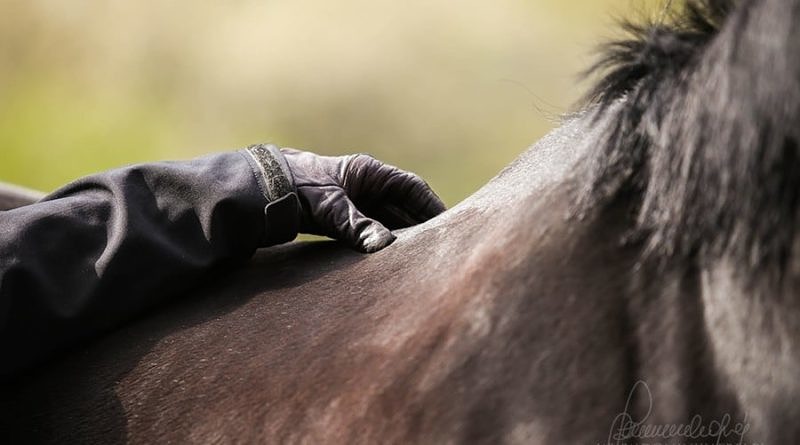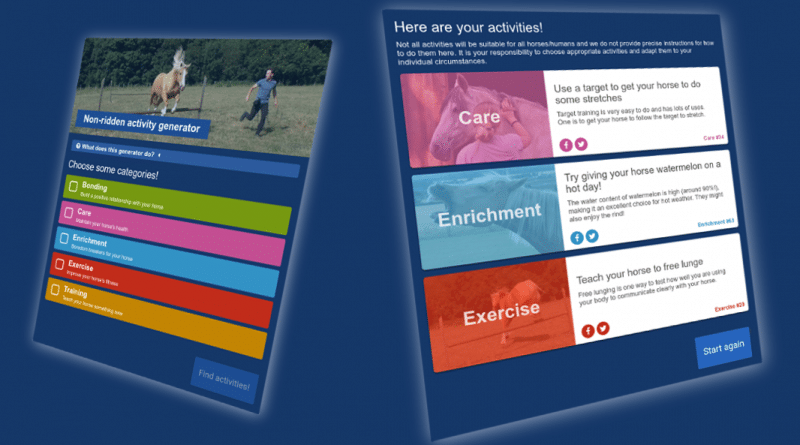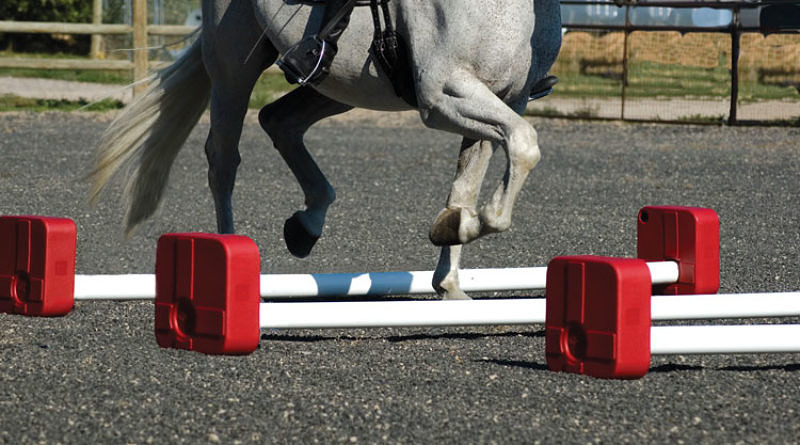Horses and the Placebo Effect
Everyone knows about the placebo effect, but what does it have to do with horses? You might be surprised!
The placebo effect is a well-documented phenomenon in humans. It is when a patient is given a treatment that doesn’t really do anything but subsequently experiences an improvement in their symptoms – not because of the treatment itself but because the patient believes that the treatment will work.
An example you may be able to relate to is experiencing an unexplained ache and going to your GP about it . Your GP may reassure you that it’s not likely to be serious and simply the fact of being reassured may relieve your symptoms because you start to worry about it less. The same can happen if you are given a sugar pill for your headache but you believe it is a pain killer – you may start to ignore the pain and as a result you really do feel it less.
The effect is not limited to medicine though – if you go on a ‘special’ diet to get smoother skin or shiny hair you may then start to notice all the positive things about your appearance, feel better about yourself and start to feel rejuvenated, which may in itself give you a healthier look, even if the ‘diet’ itself was just the same food as before eaten with a different spoon!
In fact the effect can be observed everywhere, from being given a massage that you are told will help your back pain or pelvic asymmetry to reading a book that promises to help you find the love of your life. The advice may not be life-changing, but your new-found confidence might be.
The opposite is also a phenomenon most of us are familiar with: imagine you have an itch on your back – focus on the area just below your left shoulder – and it’s not long before you’ll truly feel the urge to scratch!
Positive and negative placebo effects apply to neutral treatments and various therapies and are great examples of how we can make ourselves feel better (or worse) purely through a change of attitude or focus.
Medical trials try to take into account the placebo effect when testing the efficacy of new drugs because it has such a powerful influence. Researchers will usually give half the patients involved in a trial a “placebo” (saline solution, distilled water or sugar for instance) and the other half the real drug.
They do not tell the patients which of the two they are being given and in something called a “double blind study” they also do not know which is which themselves (the drugs are prepared by a third party in advance and labelled with a code the researchers do not know). This ensures no one making judgements about a patient’s condition knows whether the patient has taken a placebo or the real thing.
Once all the results are collected, the effects of the placebo can be compared against the real drug. If the real drug has worked, patients should show measurable and statistically significant improvements in their condition, as well as reporting improvements. Patients on the placebo may also show some improvements due to the placebo effect – but they will not be as great as the real thing. They will also believe that they have had improvements – possibly just as much as those on the real drug.
But if the real drug has the same objectively measurable effects as the placebo, it is considered a failure and does not work. In other words, if the drug has exactly the same effects as the placebo, all it is doing is making patients believe that it is helping their condition.
So is the placebo effect a bad thing? Not at all! The placebo effect is a wonderful illustration of how a positive attitude can change us physically. Even if all the attitude does is relieve some stress that we are experiencing, it can help us to feel better. Stress compromises the immune system and can make us more likely to get sick or less able to combat illness. It can leave us more prone to all kinds of health issues.
Something that can help a person feel better mentally can have a positive impact on their physical health too and is therefore a good thing. After all, if the placebo does not continue to have a positive impact and health problems persist because the condition is actually more serious than a mild ache or cold, we eventually turn to modern conventional medicine and go to our GP for a solution.
You may be wondering at this point how this is relevant to horses. Surely the placebo effect can’t be experienced by non-human animals? After all, horses can’t possibly “believe that a medicine is going to work” and therefore feel better about their condition.
Well, yes, that’s true. A horse cannot believe that the placebo will work – but their owner can.
A phenomenon known as the “caregiver placebo” explains why pet owners can actually perceive an improvement in their animals when there is none. It’s not a phenomenon limited to pet owners either – anyone involved in administering treatment, as well as family and friends or anyone else passing judgement on an animal’s condition, can also suffer from the caregiver placebo. That means any therapist or proponent of any treatment can fall into the trap of the placebo effect and genuinely believe that their treatment is working for your horse – but be mistaken.
The caregiver placebo occurs when a hopeful owner tries to assess their animal’s condition following a given treatment. It doesn’t take much to see an improvement in a lame horse or think that a horse’s behaviour under saddle has improved following a treatment, and unfortunately without an objective measure of these things, none of us are immune from making inaccurate judgements based on what we believe or hope. Even people who are “skeptical” about a treatment can fall into the trap of the caregiver placebo – after all, why try a treatment if you didn’t have some hope that it might work?
Remember that in clinical trials of human drugs (and actually also drugs intended for other animals), the researchers are blind to which treatments are a placebo and which are the real thing. This is because otherwise those researchers could also fall into the trap of the caregiver placebo – thinking that they can see greater improvements in their patients taking the real drug – because that is what they hope to be true.
The only way we can fight against this placebo effect is to conduct thorough double blind scientific trials in which a given remedy or treatment is tested against a known placebo (i.e. something we know doesn’t have an effect – like distilled water) and then take objective measurements of the results. That is measurements such as heart rate, weight, white blood cell count etc – that can be measured without subjectivity.
We already established that the placebo effect is not a bad thing in humans so why should we be concerned with it when it applies to horses?
The trouble with the placebo effect is that it does require belief. So while a human patient experiencing the placebo effect believes that they have been given a treatment that works and subsequently feels a genuine improvement in their condition, a horse cannot do this. A horse does not know that it’s been given something to help it with an ache or that the massage it got is meant to help its back pain. And a horse cannot believe that this “will work”.
A horse will continue to experience the same symptoms as it did before – while its human caregiver believes that the treatment has worked and perceives an improvement in the horse. And because horses cannot speak to tell us bluntly that the treatment hasn’t helped them, they may continue to suffer in silence, the owner focusing more on positive signs than negative ones and overlooking the horse’s condition – sometimes even while the horse continues to deteriorate.
This effect is most pronounced when the owner has been told by many people that a given treatment works, even if their evidence is purely anecdotal or from their own experience. While this kind of information can be extremely persuasive, it is subject to all the same problems – no one, remember, is immune to the placebo effect. Only double blind trials can truly tell us what works and what doesn’t.
That is not to say that untested treatments do not work. It is only to say that if a treatment has been tested, it is known to work or not work. There are plenty of treatments that have not yet been tested and may turn out to work when they eventually are.
However, it’s a bad idea to turn to these other options too soon. Many substances and practices can also turn out to be very harmful once tested – even if it’s not necessarily obvious that they would be – and even if they’ve been used by many and regularly for a long time.
It’s also important not to be tempted into believing that a conventional treatment does not work due to your personal expectations. This is something that can happen easily – remember that itch you then had to scratch? Even the smallest suggestions or preconceptions can easily influence our perceptions.
Most owners are well-meaning and are only trying to do what’s best for their horse. But because we care about our horses’ well-being and don’t want them to suffer, we are actually the people most prone to the caregiver placebo. It is therefore really important to recognise this when choosing what treatment to pursue when your horse suffers a health problem and to always ask your vet to take some objective measures and suggest treatment options before turning to alternatives. It is also a good idea to have your vet take some baseline measures of various physical indicators while your horse is healthy. This will ensure you have something to compare results against when you do pursue a course of treatment.
It is worth remembering that the placebo effect and the caregiver placebo do not only apply to health problems. They can also apply to behavioural issues and riding. It is not uncommon to perceive an improvement in a behaviour where there is none – or even the opposite, believing something is worse than it was when it’s actually the same. This means that, in training, we have to try to remain as detached and objective as possible when assessing the behaviour of our horses, This can be a difficult task because, unlike health parameters, behaviours can only rarely be measured with much objectivity! It is therefore advisable to have someone on the ground who is aware of the power of the placebo effect and can consistently assess your progress in an objective way. This will help identify even small improvements so that you do not become discouraged and keep you moving in the right direction for your partnership with your horse to blossom.







